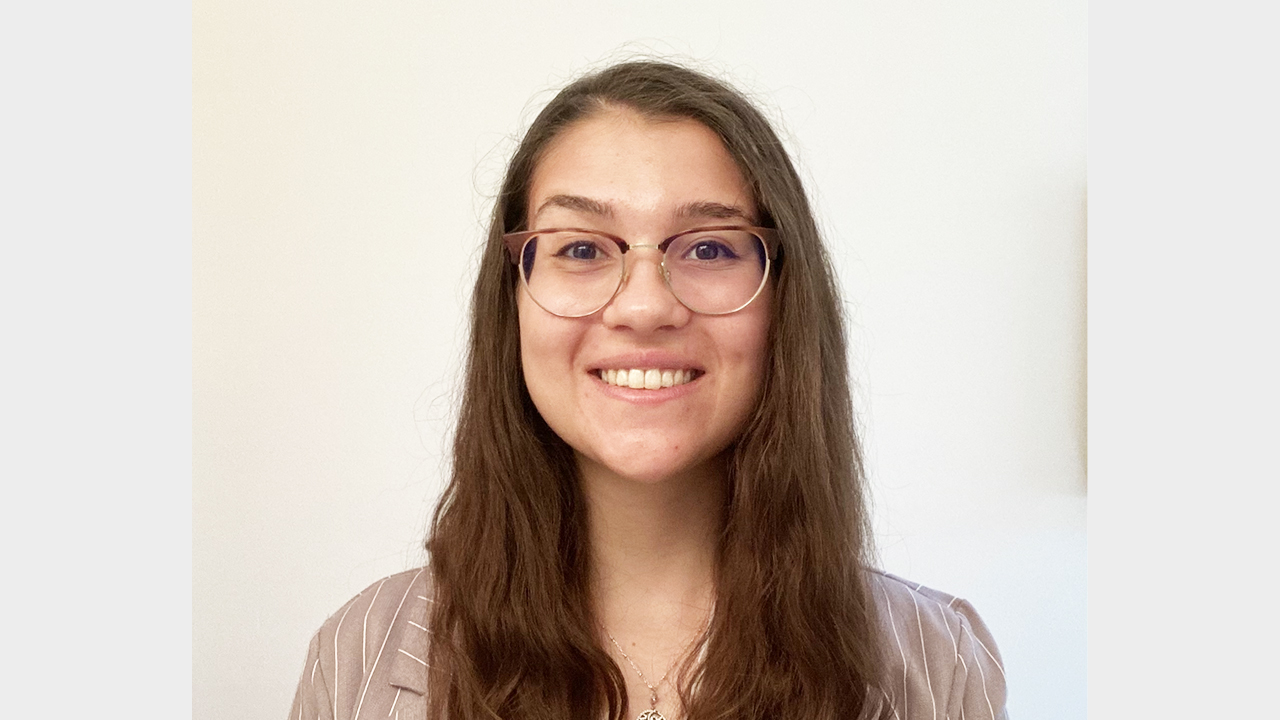Summer Spotlight: Christina Alfano '22

Christina Alfano ’22, a biochemistry, cell and molecular biology major from Red Bank, New Jersey, is a senior undergraduate researcher in the microbiology lab of Amelia Randich, Ph.D., assistant professor of biology at The University of Scranton. She is doing summer research as part of the University's Royal Experience Internship Program.
Describe a typical day for you this summer.
For the first week of summer research, the six of us met in a classroom. We discussed introductory research ideas like what our goals are for the summer, how to keep a lab notebook and how to design an experiment. Since then, we’ve been working with the bacteria species Caulobacter crescentus and learning basic microbiology techniques.
My peers, Victoria Caruso and Nick Socci, and I have been trying to generate a growth curve for our specific C. crescentus strain so we can calculate how many cells are in a solution. After many attempts of spot plate assays, dilution plates, and optical density curves, I think we’re ready to put all the techniques together.
What do you enjoy most about your summer experience?
I really enjoy just how much I’m learning about research. Doing actual research is very different from the lab courses taught here, we have to do a lot more application of what we know and problem-solving. I’m finding out that a lot of the time it’s just trial and error and getting negative or unexpected results is simply just a redirection of ideas.
What are some of the skills you have learned?
I’ve learned a lot of lab skills and techniques so far. The autoclave, the incubator, and the spectrophotometer are just some of the machines I’ve learned how to use. Another important skill is how use past research from other scientists to try and solve your questions. I think teamwork is one of the biggest skills we’re all learning.
What were your expectations of the internship? Does it match the reality?
I expected doing summer research to be difficult but rewarding. Reality definitely matches my expectations. It took some time to balance my time and work as well as put my mind in the right mindset of using critical thinking. When you’re at school studying for a test or mimicking a lab technique in class, you’re just regurgitating information. You’re not really applying or critically thinking about what you’re doing or what the information is saying. Doing this summer research is like exercising a muscle I’ve never used before; every day I learn something new about the research mindset.
 How do you feel this internship prepared you for the real world?
How do you feel this internship prepared you for the real world?
Teamwork is an important skill for anything in this world now. Also, I feel that this opportunity is really preparing me for graduate school. I really want a Ph.D. I’m the kind of person that likes to build a foundation of the skills that I would eventually learn in the future before ever really needing to know them. So, my research this summer is teaching me some of the basic skills I’d learn my first year of graduate school like how to think critically, teamwork in the lab, etc. I think this entire opportunity is showing me that research is what I want to do in the future.
What advice would you give to college students pursuing an internship during the summer?
The advice I’d give to other students would be to just ask. There’s nothing wrong with just asking people questions and gathering information. Back in February when I emailed Dr. Randich, I simply asked, “Can I do research with you this summer?” The worst thing she could say was no, and then I’d be on my way to ask other professors. Now, it’s easy for me to tell students just to ask questions, but it’s another story about getting over the fear of rejection. Getting a rejection is not a reflection of who you are or who you could be. I learned this by changing my perception. Rejections are simply a redirection and another push in the right direction. It takes time, don’t get me wrong. But once you get over the hurdle of possible rejection, asking questions is one of the best things you can do.






